|
Genres, Themes, Actors, and Directors:
- African-Americans
- Baseball
- Biopics
- Ruby Dee Films
Review:
Jackie Robinson starred as himself in this poignant depiction of his groundbreaking integration into Major League Baseball. Made on a small budget, the film covers just the basics of Robinson’s earlier life, but we learn enough to understand how he arrived at his historical role. To its credit, the film — made during ongoing segregation in many U.S. states — doesn’t shy away from showing ample evidence of systemic racism: the n-word is used several times; Robinson and his wife sit at the back of the bus; a game is cancelled when it’s announced Robinson will be playing; riots are threatened. Equally distressing is the onslaught of personal prejudice Robinson faces from both his teammates (some of whom sign a petition against him) and audience members (he endures no end of taunts, boos, and jeers, including a black cat being tossed down to him and his life being threatened by the KKK).
The following exchange early on — between Watson (as Branch Rickey) and Robinson — demonstrates his willingness to put his life and dignity on the line for a chance at an authentically remunerated career (“Negro” leagues were infamously low-paying and non-contracted):
Branch Rickey: Think you’ve got guts enough to play the game no matter what happens? They’ll shout insults at you. They’ll come into you spikes first. They’ll throw at your head.
Jackie Robinson: They’ve been throwing at my head for a long time, Mr. Rickey.
Branch Rickey: Suppose I’m a player in the heat of an important game. Suppose I collide with you at second base and when I get up I say, ‘You – you dirty black so-and-so!’ What do you do?
Jackie Robinson: Mr. Rickey, do you want a ballplayer who’s afraid to fight back?
Branch Rickey: I want a ballplayer with guts enough not to fight back. You got to do this job with base hits, stolen bases, and fielding ground balls, Jackie. Nothing else! Now I’m playing against you in a World Series and I’m hot-headed. I want to win this game. So I go into you spikes first. You jab the ball in my ribs and the umpire says, ‘Out.’ I flare. All I can see is your black face – that black face right over me. So I haul off and punch you right in the cheek. What do you do?
Jackie Robinson: Mr. Rickey, I’ve got two cheeks.
Branch Rickey: Good.
While it’s a modestly made flick, all film fanatics should watch this movie for its historical value as a film which dared to show at least some of the truth of what Robinson experienced during his path to well-earned fame.
Redeeming Qualities and Moments:
- A powerful depiction of mid-century American racism
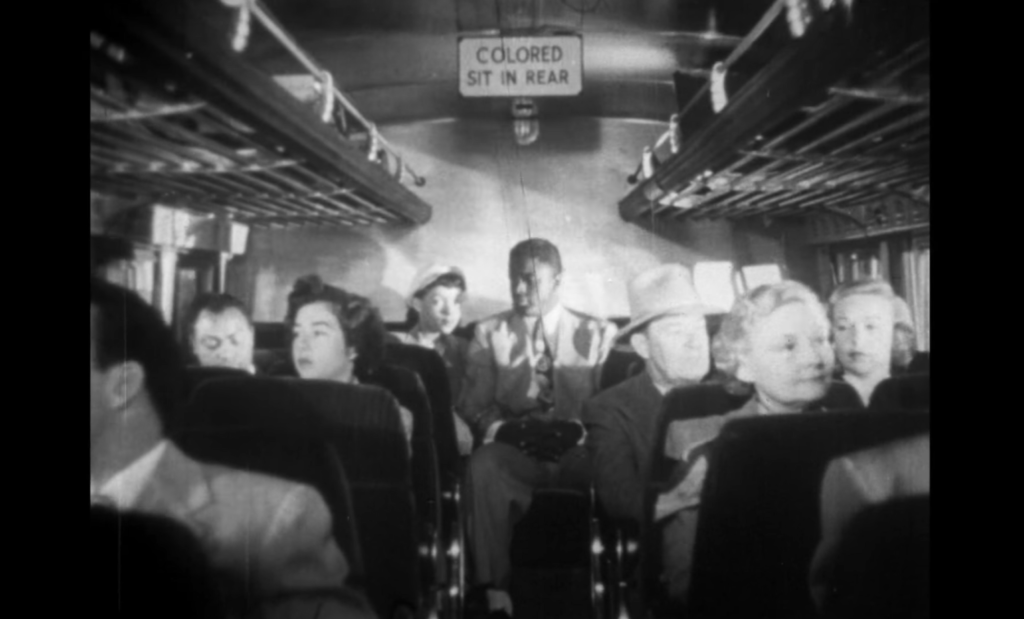
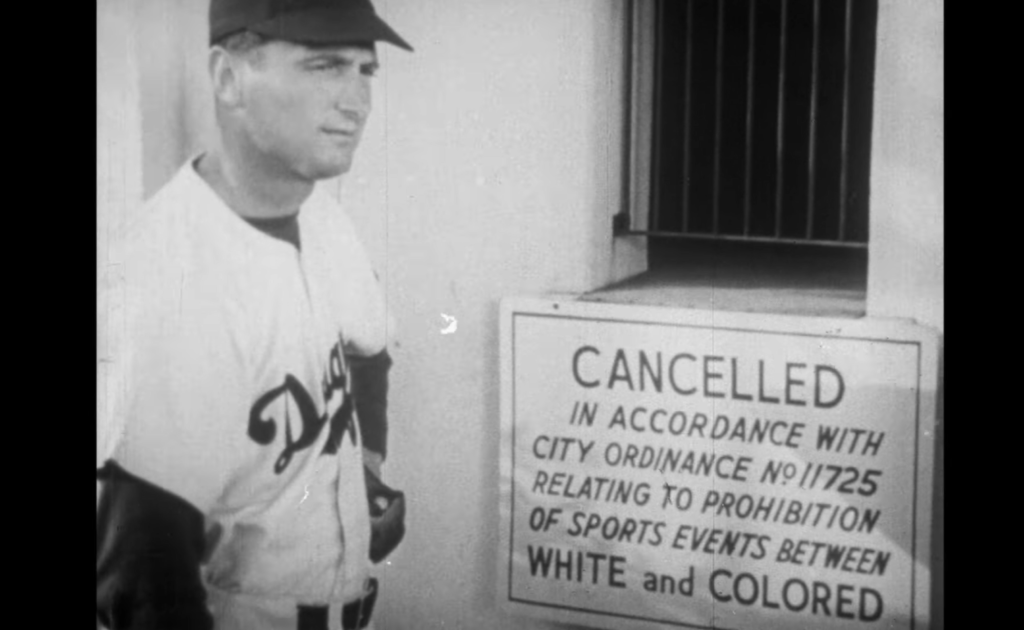
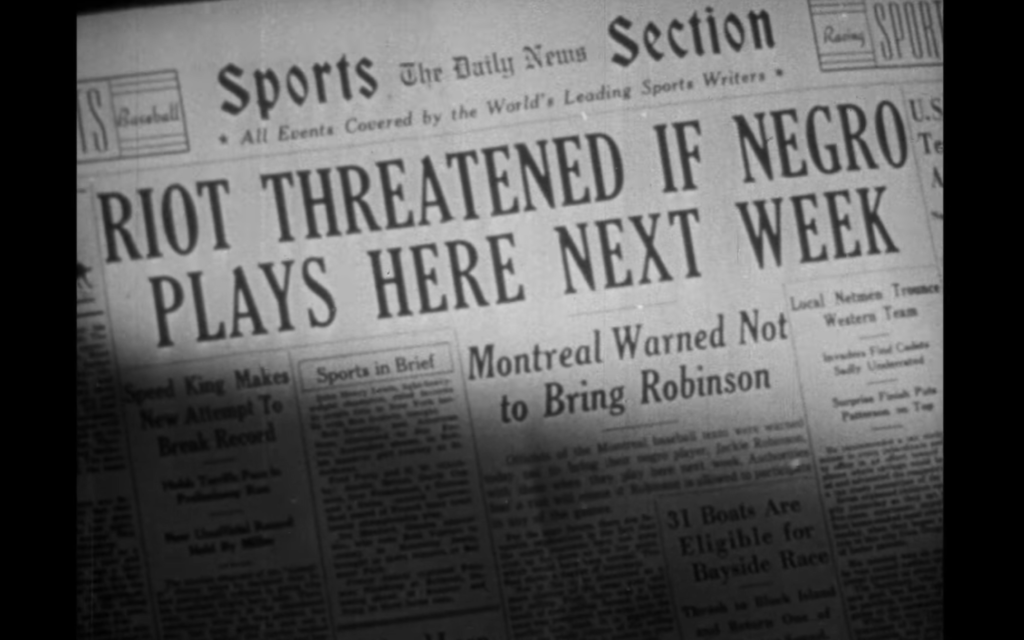
- Robinson’s natural performance
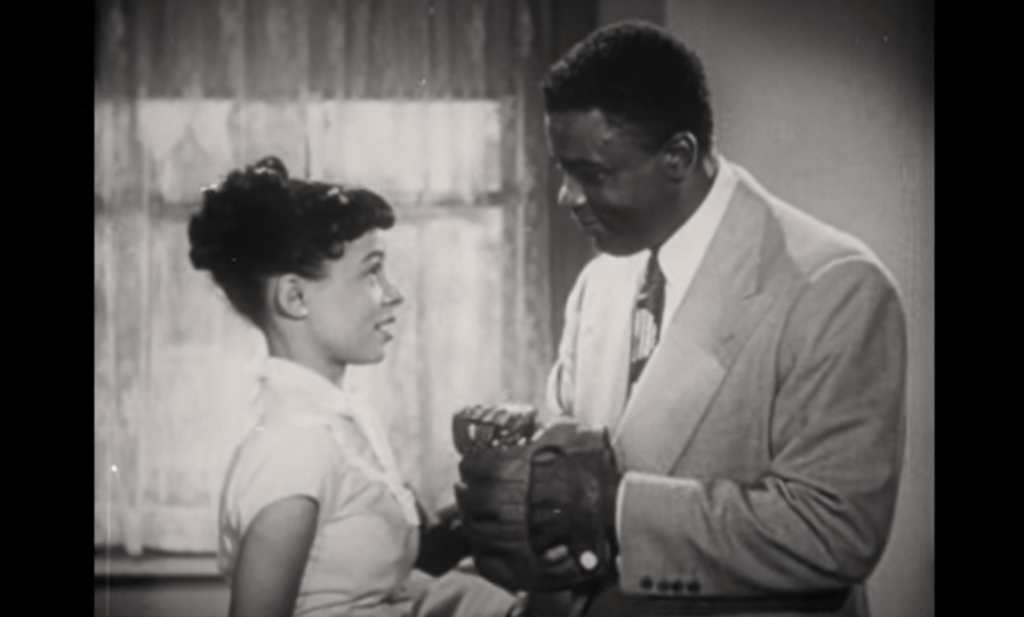
Must See?
Yes, for its historical importance.
Categories
Links:
|
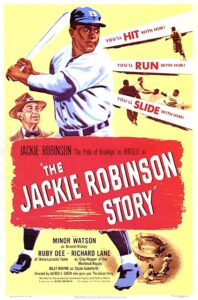




One thought on “Jackie Robinson Story, The (1950)”
First viewing. Agreed; a once-must – for reasons well-brought-out in the assessment (as well as for its historical importance).
I particularly like the large number of economic scenes that aren’t longer than a minute but which contain pertinent information. They keep the film moving at a clip.
Fave scene: the petition – and its undoing.
For a non-actor, Robinson has a wonderfully natural, understated presence. Dee is fine as his wife – and it’s nice seeing Louise Beavers (168 film / tv credits in her career!) as Robinson’s mother.
Well-directed by Alfred E. Green (‘Baby Face’, ‘Dangerous’, etc.), this is a compelling film (~ and I don’t even care much for baseball!).